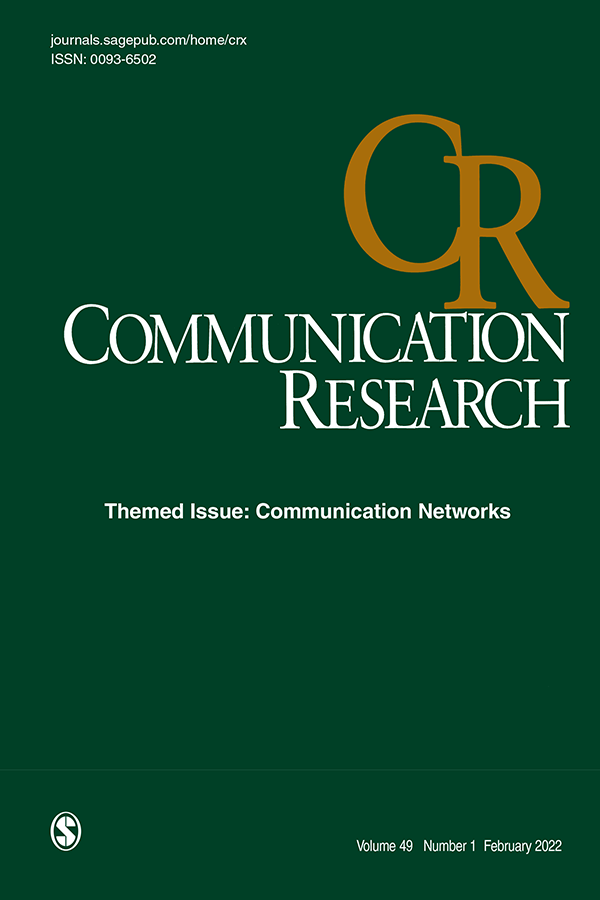核查事实核查员:信息源类型、感知可信度和个体差异在核查事实有效性中的作用
IF 3.2
1区 文学
Q1 COMMUNICATION
引用次数: 0
摘要
本研究调查了各种类型的事实核查来源(即专业事实核查人员、主流新闻媒体、社交媒体平台、人工智能和众包)在减少人们对错误信息的信任方面的事实核查效果。我们将事实核查者的可信度感知作为一种解释不同来源的事实核查有效性差异的机制,同时考虑到个体差异(即分析思维和与事实核查结论的一致性)。一项有859名参与者参与的实验显示,事实核查来源之间的有效性差异不大,但发现被认为更可信的来源更有效。事实上,数据显示,对某些来源类型而言,事实核查来源的感知可信度介导了事实核查信息曝光与其有效性之间的关系。此外,事实核查者的可信度调节了一致性对有效性的影响,而分析思维与事实核查者的可信度感知、一致性和有效性无关。其他理论贡献包括将可信度-说服关联和MAIN模型的范围扩展到事实核查背景,并对错误信息纠正的两步动机推理模型的关键组成部分进行实证验证。本文章由计算机程序翻译,如有差异,请以英文原文为准。
Checking the Fact-Checkers: The Role of Source Type, Perceived Credibility, and Individual Differences in Fact-Checking Effectiveness
This study investigates fact-checking effectiveness in reducing belief in misinformation across various types of fact-check sources (i.e., professional fact-checkers, mainstream news outlets, social media platforms, artificial intelligence, and crowdsourcing). We examine fact-checker credibility perceptions as a mechanism to explain variance in fact-checking effectiveness across sources, while taking individual differences into account (i.e., analytic thinking and alignment with the fact-check verdict). An experiment with 859 participants revealed few differences in effectiveness across fact-checking sources but found that sources perceived as more credible are more effective. Indeed, the data show that perceived credibility of fact-check sources mediates the relationship between exposure to fact-checking messages and their effectiveness for some source types. Moreover, fact-checker credibility moderates the effect of alignment on effectiveness, while analytic thinking is unrelated to fact-checker credibility perceptions, alignment, and effectiveness. Other theoretical contributions include extending the scope of the credibility-persuasion association and the MAIN model to the fact-checking context, and empirically verifying a critical component of the two-step motivated reasoning model of misinformation correction.
求助全文
通过发布文献求助,成功后即可免费获取论文全文。
去求助
来源期刊

Communication Research
COMMUNICATION-
CiteScore
17.10
自引率
0.00%
发文量
20
期刊介绍:
Empirical research in communication began in the 20th century, and there are more researchers pursuing answers to communication questions today than at any other time. The editorial goal of Communication Research is to offer a special opportunity for reflection and change in the new millennium. To qualify for publication, research should, first, be explicitly tied to some form of communication; second, be theoretically driven with results that inform theory; third, use the most rigorous empirical methods; and fourth, be directly linked to the most important problems and issues facing humankind. Critieria do not privilege any particular context; indeed, we believe that the key problems facing humankind occur in close relationships, groups, organiations, and cultures.
 求助内容:
求助内容: 应助结果提醒方式:
应助结果提醒方式:


